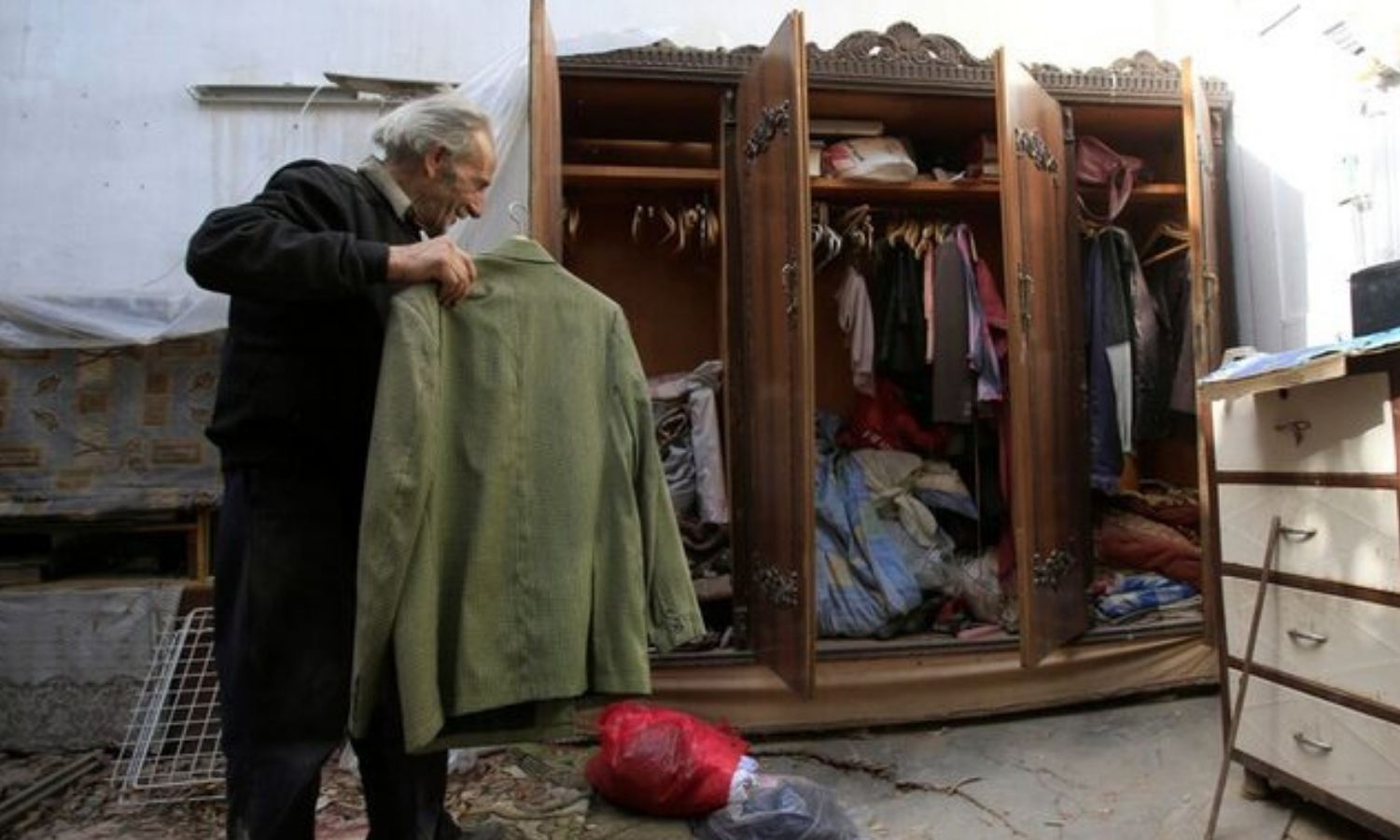



A source in Damascus governorate stated that the residents of the Jobar neighborhood in Damascus will not be returning to their homes permanently due to a zoning plan that the governorate is working on, which has not yet been approved.
The source explained in a statement to the local Athr Press news website on Sunday, August 18, that the residents of the neighborhood who own a house in Jobar will receive shares in new plots similar to the Marota City urban development project in Damascus, considering that the construction situation does not allow the residents to return.
The work on the plan was completed last year and it was displayed on the notice board, but the Rif Dimashq governorate objected to it according to the source, because part of the neighborhood belongs to Damascus countryside, and it refused to attach this part to the city. Accordingly, a joint committee was formed between the Damascus and Rif Dimashq governorates to organize the administrative boundaries.
The Jobar neighborhood in eastern Damascus witnessed fierce battles between opposition factions and the Syrian regime forces over years since 2011, during which the neighborhood was bombarded with various types of weapons, leading to widespread destruction of its buildings. The regime forces were able to control the neighborhood in April 2018 after Russia signed a “reconciliation” agreement with the Rahman Legion, under which the fighters of Eastern Ghouta were moved to northern Syria.
In June 2022, Damascus governorate issued the detailed zoning plan No. “106” to amend the urban feature of the real estate areas Jobar, Qaboun, Masjid Aqsab, Arbin, Zamalka, and Ayn Tarma from an internal protective and agricultural area to areas under urban organization.
According to a report issued by the Syrians for Truth and Justice (STJ) organization, the zoning plan of the Jobar area is considered one of the forms of continuing the Syrian government’s policy aiming to seize Syrians’ real estate properties, as most of the residents in areas included in zoning plan No. “106” are internally displaced persons or refugees.
The report indicated that planning and re-planning the areas constructed over real estates is a part of a broader policy aimed at social re-engineering of several regions in Syria, especially, opposition areas in the vicinity of Damascus city. This prompted the regime to issue several decrees starting with Decree “66” of 2012, followed by Law No. “10” of 2018, and later Legislative Decree No. “237,” which stipulated the creation of zoned areas at the northern entrance of Damascus (Qaboun and Harasta).
On May 16, an investigative report by the Syria Indicator team revealed the loss of rights for residents of the Mezzeh area – Basateen al-Razi in the Syrian capital, Damascus, and not granting them alternative housing, turning them into homeless people due to urban development plans for the two zoned areas Marota City and Basilia City.
Among 7,500 families evacuated from their homes, 5,500 families were entitled to “alternative housing” on the condition that they pay for them, and years have passed without anyone receiving their homes, meaning about 30,000 people were displaced (assuming the average family size is four members only).
if you think the article contain wrong information or you have additional details Send Correction